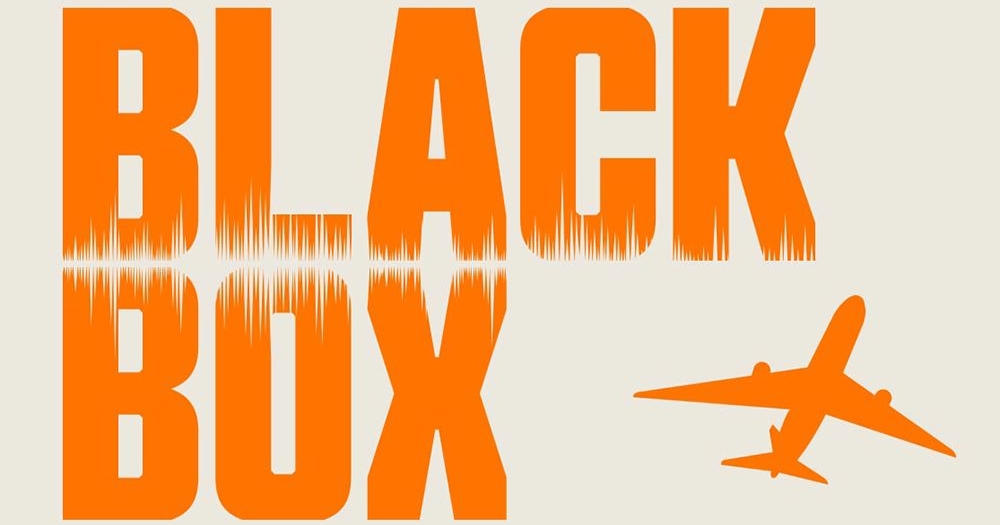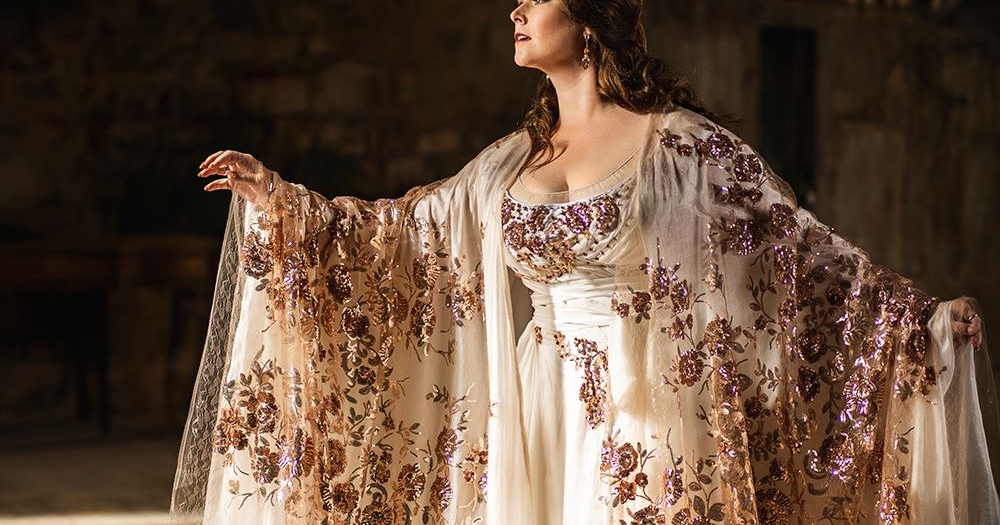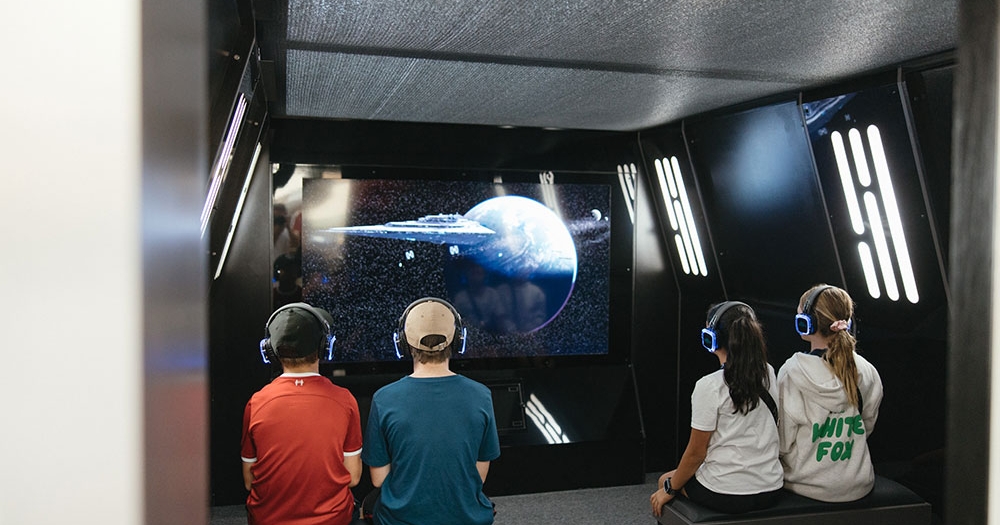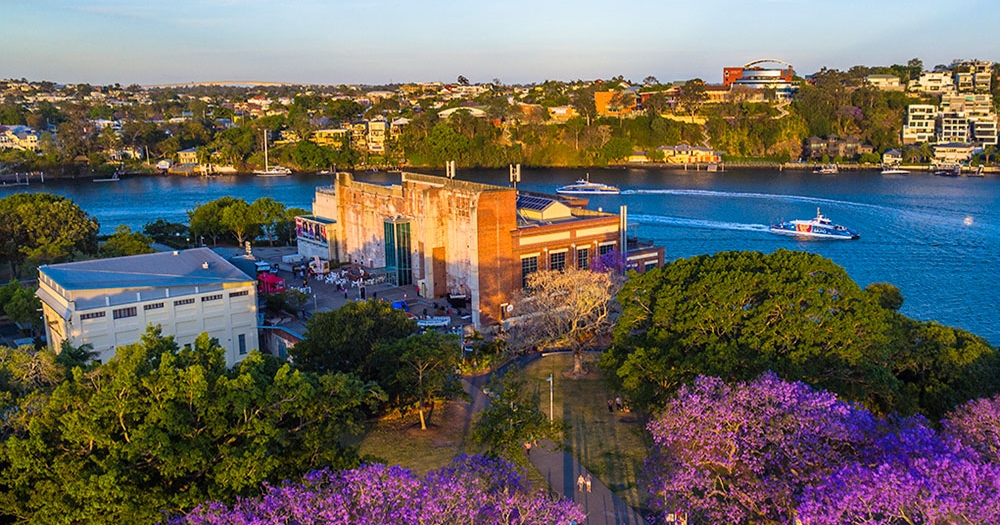New Farm Walk
1. This walk of around an hour and a half to two hours, depending on stops, begins at New Farm CityCat Terminal. (Start with a coffee at the adjacent End of the Road cafe). At New Farm Wharf during WWII a flotilla of submarines was berthed here, one of which managed to lose itself when on patrol out of Brisbane. Head left along the river and climb up the grassy bank into New Farm Park, the one time convict farm and colonial horse-racing track. The magnificent rose garden has hundreds of species of multi-coloured roses and is worth a scented wander throughout as park visitors have been doing for the past 100 years. The bandstand was designed by 19th century council architectural supremo Alfred Foster, who collaborated with Botanical visionary and parks superintendant Henry Moore on some of Brisbane’s finest parks.

2. Exit via the gate on the left, passing the sculpture depicting the mountains of North Borneo where hundreds of World War II soldiers turned POWs lost their lives building an airstrip. Turn right at the gates and follow Brunswick St for one block to New Farms’ iconic art deco Coronet Court, designed by reclusive German immigrant Max Strickland,(who also played a large hand in the exquisite decorative plasterwork of the Regent Theatre) on the corner of Elystan Rd. He also built the classic art deco house adjacent on Brunswick St and it was here that he and his wife lived until their premature deaths in the early 1950’s.

3. Turn into Elystan Road, passing the gorgeous colonial villa Elystan House that has been restored and maintained to its original grandeur. Those with a curiosity for Tudoresque flats might want to continue to the end of the street to Elystan Court and check out the attention to detail such as the leadlights in the entrance way. Either way, take Lower Bowen Terrace towards the river.

4. Oxlade Drive ahead is home to an excellent cafe, Double Shot Espresso and many mansions of experimental interwar and post war styles from the California Bungalow blended with Olde English Tudor to ostentatious Tuscan to 1960’s Martini party. Adding to the curious blend of multi-million dollar buildings on the river front are the austere 1922 established ‘Limbless Soldiers Association’ sitting in a kind of time warp with its cannon – concocted as a place for soldiers after World War I to receive support and connect and to this day still providing support to returned servicemen.

5. The string of buildings including ‘Limbless Soldiers’, Riverside Reception Rooms and Merthyr Bowls Club are all related in that the Merthyr Bowls Club was, interestingly the Limbless Soldiers Bowls Club which was built as a place of recreation and taken over by the Merthyr Club in 1931. Keeping with the war theme the corrugated iron igloos (heritage listed) containing the Riverside Reception Rooms were built by the Americans in World War II as an American Officers Club for relaxation and till today still remain largely unchanged on the street side.

6. Take the path beside Merthyr Bowls (a breezy and casual spot for a drink or snack) to Merthyr Park on the river front. This exclusive little band of green wraps around the river for several hundred metres, studded with Poinciana and fig trees and the odd contemplative bench while at low tide a sludgy beach surfaces under the mangroves. Amongst the mish mash of flats and houses looking onto the park, one house is taking no chance with trespassers and is curiously barred and caged to within an inch of its existence.

7. At the end of the park head up the hill along Sydney Street. The first chunky glass and pale rectangular tower of flats, Glenfalloch was the first high rise built in the area in 1962. Continue until Sydney intersects with Moray St and turn left. The Spanish Mission house is the heritage listed Santa Barbara designed by architect Eric Trewern who is credited with bringing the style and a rush on Cordoba tiles to Brisbane via this and El Nido at Hamilton. The grand white residence opposite, originally named Inglenook, was taken over by the Anglican Church in 1942 and from then until 1975, known as GFS House, it became a Young Womens Hostel whose aim was to protect single vulnerable girls from waywardness. The block of units on the corner diagonally opposite is the site of Vera, the demolished house of Dr Lucas who was the eccentric founder of Dr Lucas’s Paw Paw Ointment (used cosmetically by Hollywood celebs today) and which also served as a pawpaw hospital.

8. Moray Street is a litmus test for the varying architectural styles of New Farm from its inception to today – from six-pack flats to red brick post wars to weatherboard bungalows and Spanish Mission facades, with one of the standouts being no 186, the majestic Victorian villa Glenugie circa 1886 (later Archibald House) which was also a one time hostel from 1932, this time with Presbyterians and Methodists keeping country girls out of trouble.
9. Turn right into Merthyr Road. This whole area was once simply known as Merthyr, after the grand house that once stood on this road that sadly, no one had the foresight or inclination to preserve. The tiny pocket of shops here contains the Moray café, a long term hang out for locals. At the intersection with Abbott St turn left.

10. Abbott Street was the beneficiary of one Mr Kennedy’s gift to his neighbours in planting rows of camphor laurels down each side, thought to be inspired by the camphor laurel tree (the first in Brisbane) that once stood in the grounds of Merthyr. Number 41 is a Robin S Dods designed house built for his mother, his own next door having been since demolished. At the end, turn left into Moreton Street and up to Moray, turning right.

11. A little way on past the increasingly bulky and large blocks of flats is a tiny cul de sac, Julius St, preserved almost in its entirety of heritage listed art deco flats which came into being after a couple of tragedies. These seven blocks were built between 1934 and 1938 after a catastrophic fire destroyed a timber mill that occupied the entire site, owned by Rosenfeld & Co and it was decided not to rebuild it. (The street is named after Julius Rosenfeld). Interestingly the mill had been built on the site in 1921 after it had been left vacant for some 20 years, as the previous tenant had their business wiped out by floods. One James Campbell in 1882 had opened a planning mill and joinery incorporating two brick two lime kilns to burn limestone as part of his building material supplies. His business having been inundated by the floodwaters of 1893, he subsequently relinquished it however the two brick kilns are still visible today down on the riverbank, from the river.

12. The ornate white iron lace trimmed homestead at no 71 was designed by prominent Italian born (Florentine) architect Andrea Stombuco as his family home, Bertholme, where he resided from 1882 to 1888 before moving to Perth in 1891 to escape his debts as the result of the 1890’s depression. He died there away from his family and penniless in 1907. The house itself became known thereafter as The Moreton Club.
13. As Moray St comes to its end, it winds past blocks of Spanish Mission, Tudor and art deco flats including the splendid heritage listed trio ‘Ravenswood’, ‘Casa Del Mar’ and ‘Casa Del Rio’, interspersed with post war brick and prewar weatherboard houses. One of the last on the block is the Hey Mr Café, a funky little New Farm haunt for all day brunch with an Asian twist..

14. Keep heading left to Bowen Terrace and Wilson Outlook Reserve, a relatively unfrequented patch of grass at cliff’s edge that affords Brisbane’s most dramatic lookout - at eye level with the traffic rumbling across the seventy year old span of the nearby Story Bridge, the northern city skyline forming a backdrop, and with a birds eye view of the historic Howard Smith Wharves below and Kangaroo Point across the river. Below the cliffs were once a quarry and in the 19th century a line-up of grand villas occupied the riverfront above to catch the breezes.

15. Turn right into Harcourt Road to its intersection with Brunswick St. On the opposite corner is Tudor styled Avalon, designed by Hall and Prentice (City hall architects) constructed in 1929 as one of the area’s first block of flats. With 26 flats alphabetized rather than numbered A to Z, each comprising a bedroom kitchen & bathroom. More often than not it has housed artists and at one stage in the last 1990’s was an artists’s co-op that featured a sculpture of an angel in the window that local streetwalkers felt kept them safe. On the opposite corner is the unique layered house La Scala which was innovatively designed and built in 1914 for a doctor, with the surgery on the ground floor and living quarters on the upper two levels and for decades was used in this way. The Tudor style building on the corner between the two is a funky little coffee lounge.

16. Head to the right down Brunswick St, where the old Rivoli Theatre (unfortunately defaced by supermarket logos and ads) began life as the first picture show theatre in New Farm. Its interior was open to the sky and as a leading film theatre it boasted a 4 piece orchestra and ushers.

17.At the intersection with Barker St to one side and Annie to the other is a little pocket of gastronomy and drinking holes that are the jewels of the area. The Brunswick St Shops building dating from 1889 houses shabby chic Gerties Bar. Around the corner on Barker St is one of Brisbane’s best French boulangerie/patisseries Chouquette and cosy Euro style bistro The Continental Café. Across the road the landmark New Farm Cinemas have been returned to their former glory.

18. Heading further along Brunswick St towards New Farm park the stately residence Wynberg lurks behind heritage gate posts and hundred year old trees. Built in the 1880’s for a retired wealthy squatter and in 1915 eagerly snapped by Catholic real estate magnate Archbishop Duhig, it became a place for the community to drop in and the door was kept open for an hour each morning despite the interior containing a lot of valuable paintings collected by him. When children saw his purple biretta on the back of his chair (the sign he was in) they’d ring the doorbell and be invited in for milk and cake, a practise which would surely be outlawed today.

19. The imposing Holy Spirit Church (circa 1930) with its 38.7m tower is perhaps the most grandiose of its time built in Brisbane - a kind of no expense spared operation, harnessing the talents of prominent local artisans. The semi-dome of the sanctuary is embellished with a splendid mural painting by renowned church artist and decorator William Bustard, and the twelve Stations of the Cross designed by esteemed sculptor Daphne Mayo who is best know for the magnificent tympaneum on the façade of Brisbane City Hall.
20. Turn right into Charles St and follow down to Merthyr Road, where to the right Merthyr Village village it intersects with Brunswick St and with local 50 year old institution New Farm Deli hidden away within. Head back along Merthyr away from Brunswick St until it hits the river then take the river path to the right.

21. The path passes in front of gracious historic landmark Amity, the original home of prominent politician Thomas Welsby. Continue along the river to the old CSR Refinery, built in 1892-1893 and one of the few surviving intact refineries of its type built in that era when the sugar industry was undergoing something of a revolution.

22. From the CSR follow the path onwards around the river front to the Brisbane Powerhouse, another monolithic landmark from a bygone era. When erected in 1928 it was the first Brisbane Council commissioned electricity station in Brisbane and went on to supply the electricity for the entire tramway network until this was dismantled in the late 1960’s. After being decommissioned in 1971 the building had a stint as a chemical store and a venue for military exercises, underground parties and a homeless shelter. Evidence of these past exploits has been preserved in the gritty inside character of the building, which is now a leading hub for the arts.

23. Mary Mae's on the ground floor overlooks the river and the Flood sculpture and is a casual spot for a coffee, snack or bar drink before returning to the CityCat stop.
New Farm Walk
New Farm Ferry Terminal
Brunswick St
New Farm






















